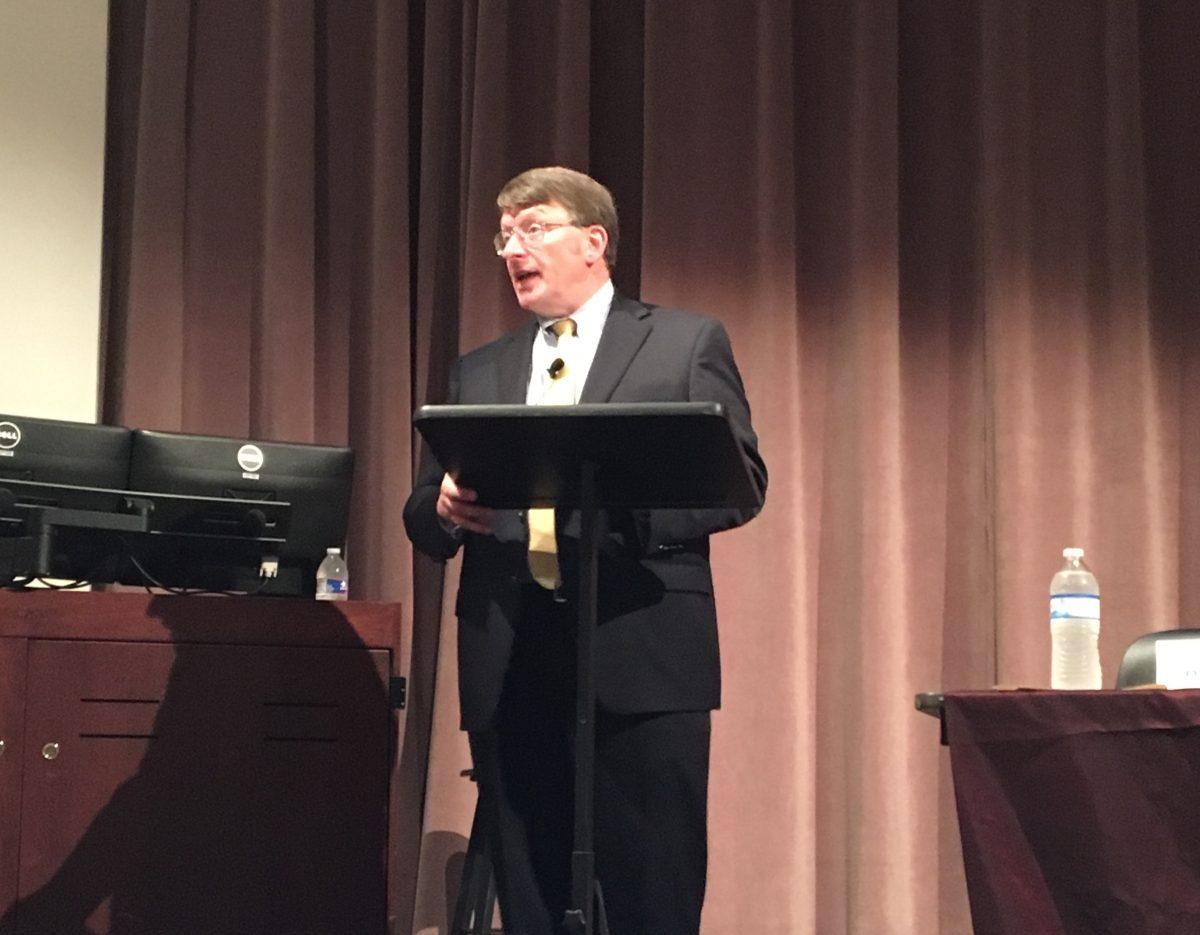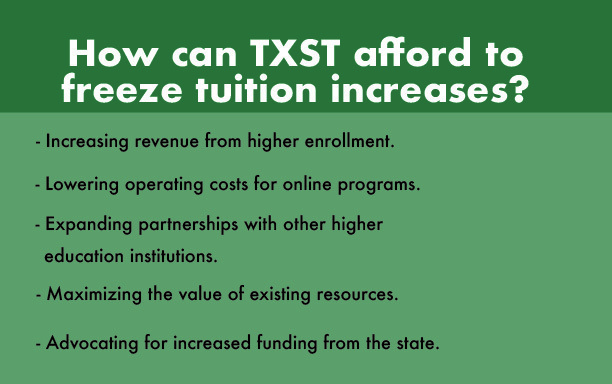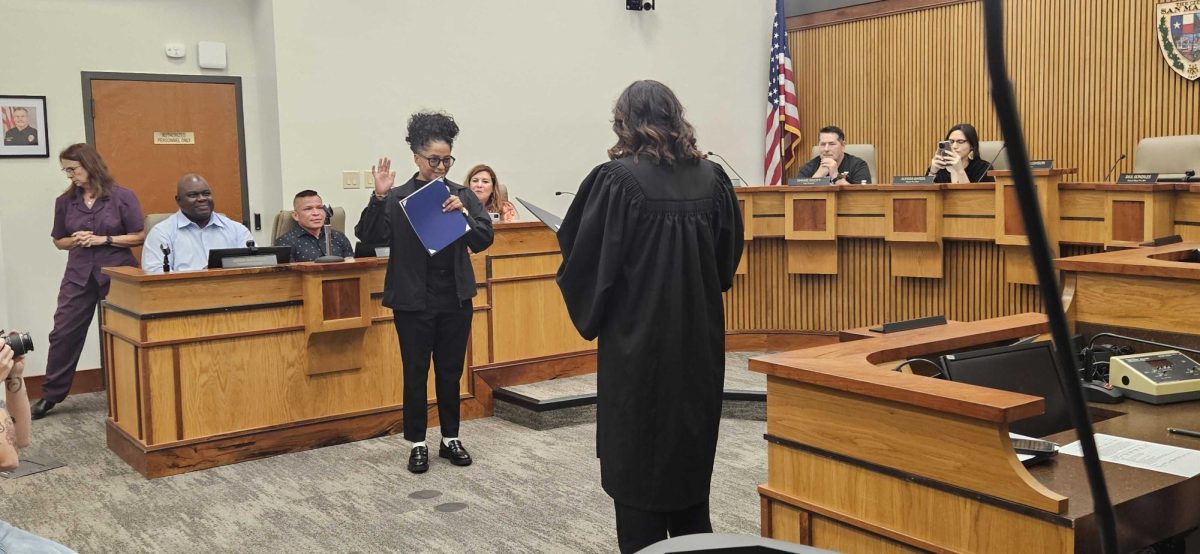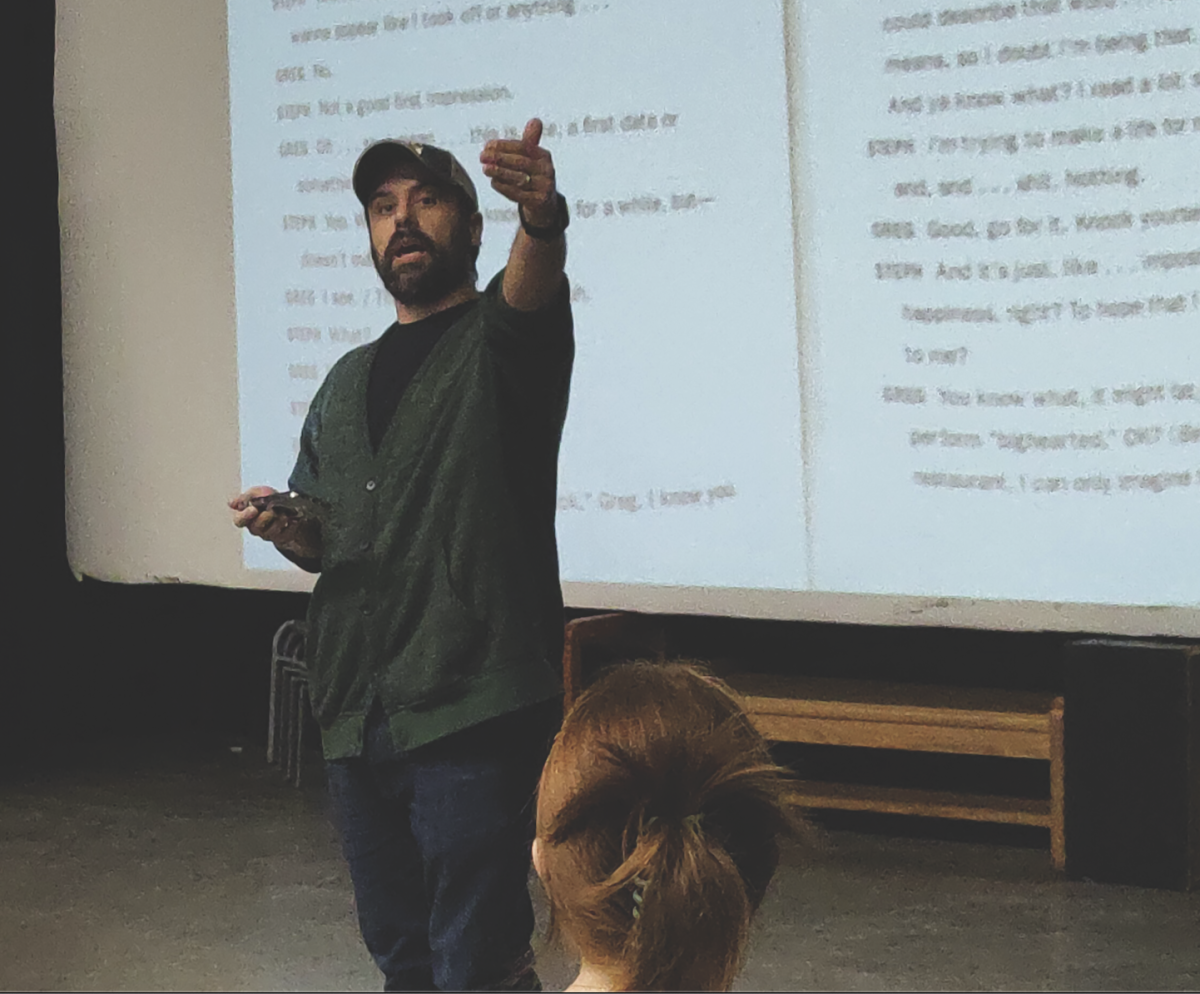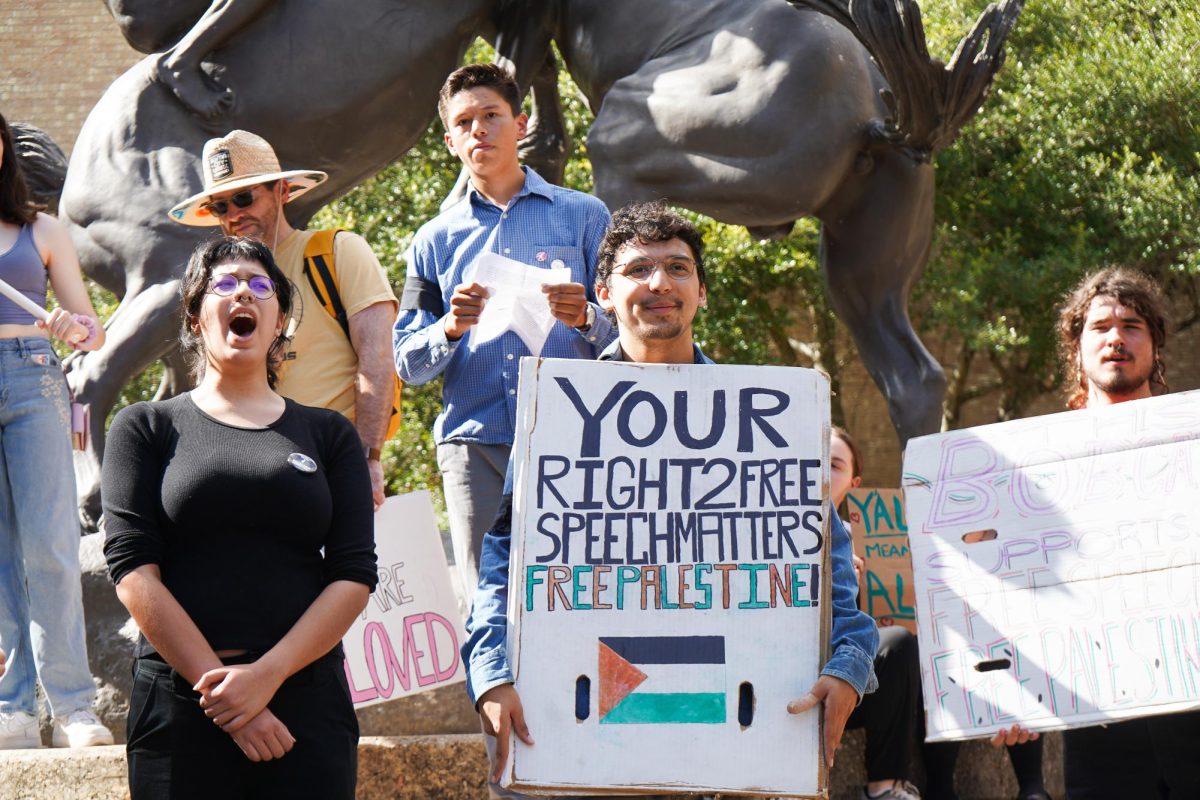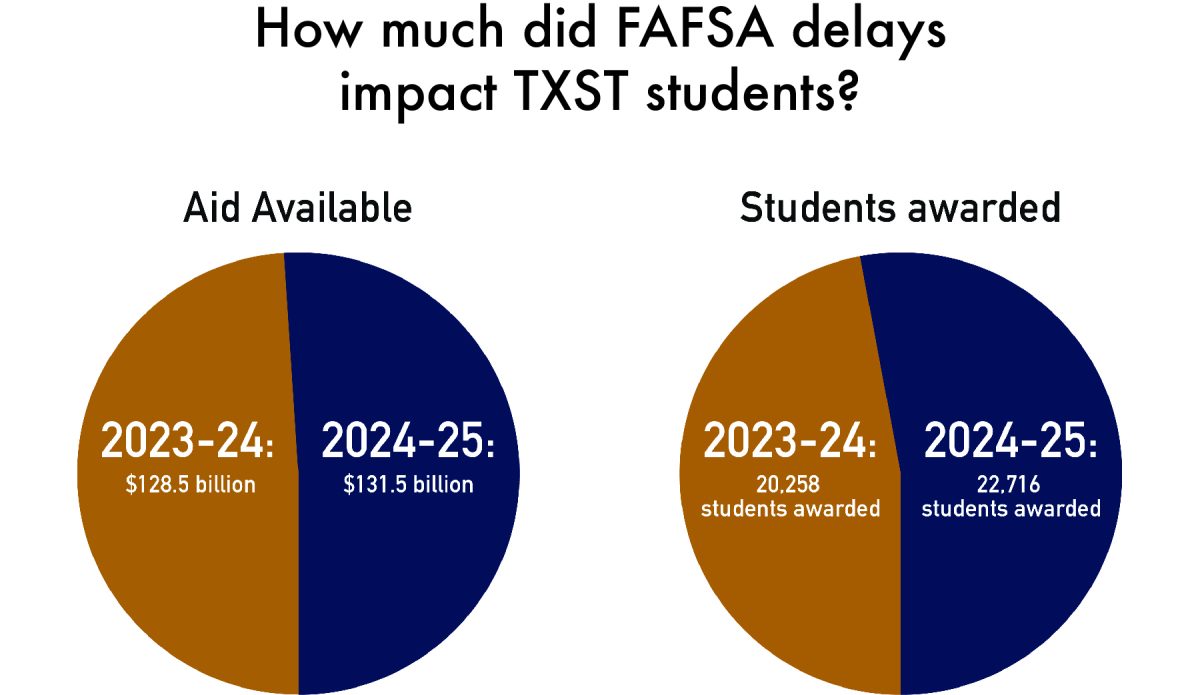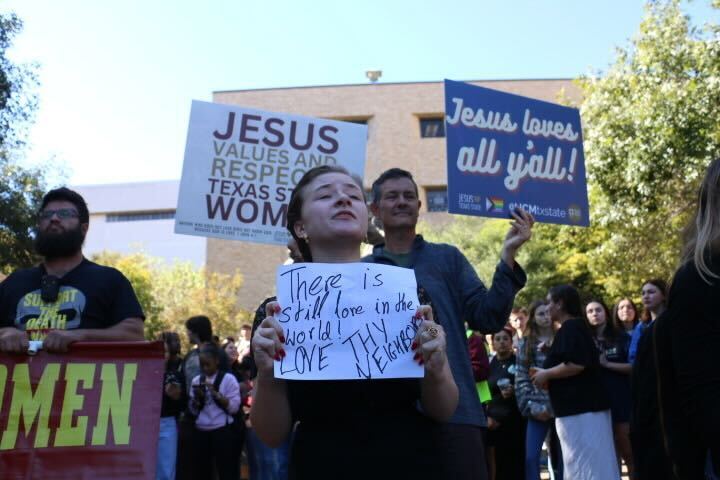James R. Stoner, Jr. delivered a lecture titled “The Positive Liberty of Speech,” on Sept. 19 in the Alkek Teaching Theater as part of the university’s week-long Constitution Day celebration.
Stoner’s lecture was centered around what free speech is and what limits should be in place. Stoner discussed three purposes of free speech, and the limits that relate to such purposes.
“The first purpose of free speech is that freedom of speech, as presented by Milton, is essential for human beings to learn and know the truth,” Stoner said. “This means the truth about all things, the nature of the universe, about human flourishing, about God, about justice, risk, about the character of those in authority. The way to truth is through critical engagement.”
Stoner said the limits to this purpose of free speech is that it is wrong to lie or to say an untruth, deliberately.
The second purpose of speech that Stoner named is to allow for self-government.
“A monarch might be able to rule without public speaking, but in a republic or a democracy, deliberation takes place openly, and every citizen knows that to make a good choice, you ought to hear both sides,” Stoner said. “It is important to hear arguments for and against any public action that is proposed and to hear all views on what should be on public agenda.”
Stoner also said that without rules or order, speech is often just noise.
“Expressing passion perhaps, but not offering reasons,” Stoner said. “Staking out positions, but not aiming at understanding. There’s a place for passion and positioning, even for protests in self-government, but it is only provisional. It is only the beginning of an argument, bringing something neglected to the attention of the complacent. But if it persists and does not take the next step towards genuine engagement, following the rules of some form, it’s more likely to suppress speech than to promote it.”
Stoner said he believes that the third purpose for free speech, is the freedom express one’s individuality and to make a distinctive contribution to society, whether in culture, the economy or to neighbors and friends of his choice.
“No one’s right to express his personality ought unjustly to unhinge another’s ability to do the same,” Stoner said. “Speech can sometimes threaten or assault another person. In this situation, it has no rights to claim protection as freedom of speech.”
After discussing the three purposes of free speech, and the limits that should correlate with them, Stoner went on to say that freedom of speech ought not to be evoked to defend an expression that undermines the psychological prerequisites for freedom of thought and action or the moral character of free souls.
Stoner later criticized the current collegiate academic realm for not providing an even teaching spectrum in which there is a place for both liberalism and conservatism.
“Universities in some fields increasingly lean in one direction, the left, truth gets distorted and justice gets misunderstood,” Stoner said. “There are harmful consequences for this in particular. Students are often only exposed to one side of the story, or rather they hear one side and talk with rational authorities, and see the other side only in the form partisan political expression on the internet or Fox News.”
Stoner ended his lecture with confidence in current students’ abilities to address and change the deep fractures within our political system.
“Freedom of speech requires an appreciation for the vastness of what can be known, humility in respect to how little each one of us can know,” Stoner said. “The question of freedom of speech requires us to rise above not only our prejudices, but our theories. Not only our backgrounds, but our cohorts. This is the true task of the university. And while I don’t believe that alone will adequately address the deep fractures in our political life, I do think that universities so dedicated will help produce the men and women that can.”
Stoner is the Hermann Moyse, Jr. Professor of Political Science as well as the director of the Eric Voegelin Institute at Louisiana State University. He is the author of the books “Common-Law Liberty: Rethinking American Constitutionalism” and “Common Law and Liberal Theory: Coke, Hobbes and the Origins of American Constitutionalism.”
senior lecturer for the Department of Political Science said that the university chose Stoner to speak for many reasons.
“We chose Dr. Stoner as he is currently a known expert scholar on the First Amendment and particularly Free Speech,” Inbody said. “As this is Constitution Day/Week, discussions surrounding the First Amendment are valuable and valid. It certainly fits within the mission of the Discourse in Democracy program here at Texas State University to encourage lively discourse on topics related to democracy in free society.”
Categories:
University invites guest speaker for Constitution Day
September 26, 2017
James R. Stone, jr delivers lecture on free speech, Sept. 20. Stone was asked to the University by the department of political science and philosophy.
Photo by Josie Soehnge | News Reporter
0
Donate to The University Star
Your donation will support the student journalists of Texas State University. Your contribution will allow us to purchase equipment and cover our annual website hosting costs.
More to Discover


